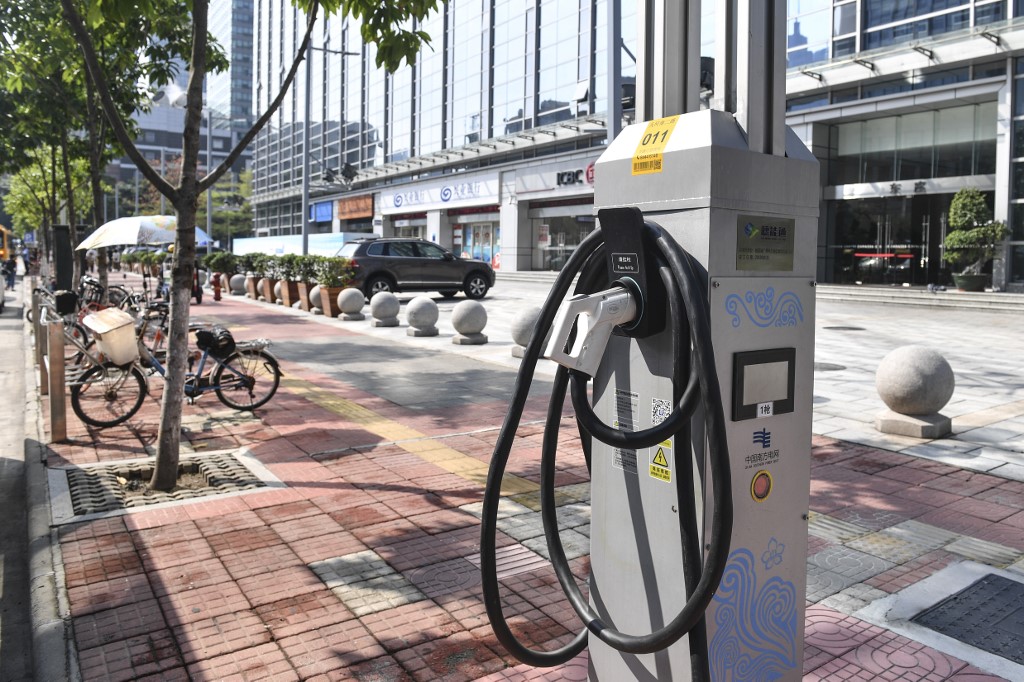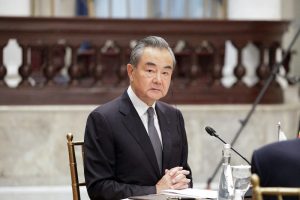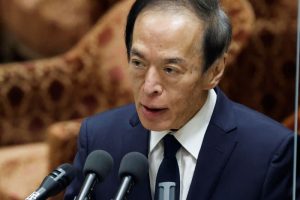(ATF) FACING a global economic crisis, China has fallen back on the tried and tested methods of the 1930s when President Franklin D Roosevelt said ‘Build, build, build.’
A similar tactic worked in the 2007-08 financial crash when surplus labour was injected into building projects nationwide, such as ‘building a road to every village’. China will spend the money on building a ‘smart’ grid, ‘smart transport’, 5G, data centers and a series of new ‘major projects’.
China is also not ruling out issuing a new tranche of special government bonds.
Minister Song Qiuling said the Ministry of Finance would continue to guide some regions to speed up local government bond issues, and at the same time, urge local and project units to accelerate the use of new bonds.
In regard to whether the quota of new bonds would be expanded this year, Song Qiuling said any expansion of the quota would require the implementation of the required legal procedures and a report to the National People’s Congress for approval. The Ministry of Finance – in accordance with decision-making arrangements of the Party Central Committee and the State Council – would integrate factors such as the economic situation this year, the needs of macro-control, and the state of fiscal revenues and expenditure, and combine the situation of epidemic prevention and control with changes in the economic situation to make a comprehensive plan for the issuance of new bonds.
As of March 20, new special government bonds totalling 1.23 trillion yuan (US$173.7 billion) have been issued across all regions, with all funds earmarked for infrastructure construction.
Some projects started earlier are already back on track. “Transportation projects have basically met the requirements to achieve a full return to production. We are confident that we will complete the assigned tasks .. this year,” Zheng Jian, deputy director of the Basic Division of the National Development and Reform Commission, told the Securities Daily.
‘Smart’ transportation, ‘smart grids’ and ‘smart city’ projects
Zheng Jian said the NDRC has considered and approved the promotion of high-quality infrastructure developments. The next step is to accelerate the development of high-quality projects, and coordinate and promote the construction of more ‘smart’ transportation, a ‘smart grid’, and ‘smart city’ projects. (These involve digital technology that allows two-way communication between a utility such as a power plant and customers with sensors along transmission lines that make a grid ‘smart’, so that it responds to changes in demand or problems.)
Ou Hong, director of the NDRC’s Investment Department, said work had gradually resumed on most major projects except for Hubei province – 89% of about 11,000 key projects in various provinces, as of March 20.
Ou Hong said the next step will be to take three measures: First, to accelerate the start of construction of a number of major projects. The second is to actively expand effective investment. The third is to ensure accurate investment and not overspend. Speeding up construction of new infrastructure such as 5G networks and data centers was also highlighted.
Zheng Jian said that “the Central Committee for Comprehensive and Deepening Reform has considered and approved opinions on promoting high-quality infrastructure development. The next step is to speed up the repair of traditional infrastructure’s shortcomings. Traditional infrastructure needs are still very large. On the other hand, the next step for new infrastructure is to accelerate the development of high-quality projects. It is necessary to further strengthen the planning guidance for new infrastructure construction, improve the policy environment, innovate relevant institutional mechanisms, support the establishment of diversified demonstration and application scenarios, strengthen forward-looking and guiding technology research and development and innovation, and consolidate the foundation for development. It should also take the new infrastructure as the traction, promote the optimisation of traditional infrastructure services and improve efficiency. In the future, it will meet the needs of … a ‘smart’ economy and society.”
Song Qiuling, a first-level inspector of the Department of Economic Construction of the Ministry of Finance, said that as of now the MOF has issued a 2020 central infrastructure investment payment transfer process to local governments. In addition, the ministry has issued a total of 1.848 trillion yuan of local government bonds in advance in 2020, including 558 billion yuan of general bonds and 1.29 trillion yuan of special bonds, and all the special bonds are for infrastructure construction.
As of March 20, new local government bonds have been issued across the country amounting to 1.479 trillion yuan, accounting for 76% of the quota issued in advance. Among them, general bonds amounted to 384.6 billion yuan, accounting for 69% of the quotas issued in advance; special bonds were issued 1.02 trillion yuan, accounting for 79% of the quotas issued in advance.
She noted that this round of issuance is accelerating. As of Friday March 20, nine regions had completed the issuance of new local government bonds. The terms were also more reasonable, she said, with long-term debt accounting for more than 80%. And thirdly, all special debt issued in advance would be used for infrastructure construction.
China also plans to speed up the claiming of land for all these special new projects. Liu Guohong, a spokesperson for the Ministry of Natural Resources, said: “By promoting the amendment of the ‘Land Management Law’, especially since the outbreak of the epidemic, special procedures have been initiated to speed up (land) examination and approval. It is believed that land for major investment projects involved will not see delay in the approval of land use.”
8.9m acres of ‘idle’ land earmarked
Over the past two years, more than 8.9 million acres of ‘idle’ land has been approved for use. About 14.5 million acres of land had been approved for use, but was not provided before 2017, and there was still a lot of potential for stock activation.
Online comments by readers of Securities Daily China said they strongly support the issuance of local bonds and focus on new infrastructure construction, as it is conducive to boosting the economy, increasing employment, optimising infrastructure construction and improving people’s quality of life. It would also strengthen supervision and focus on production and the ecology of cultivated land and wetlands.






















